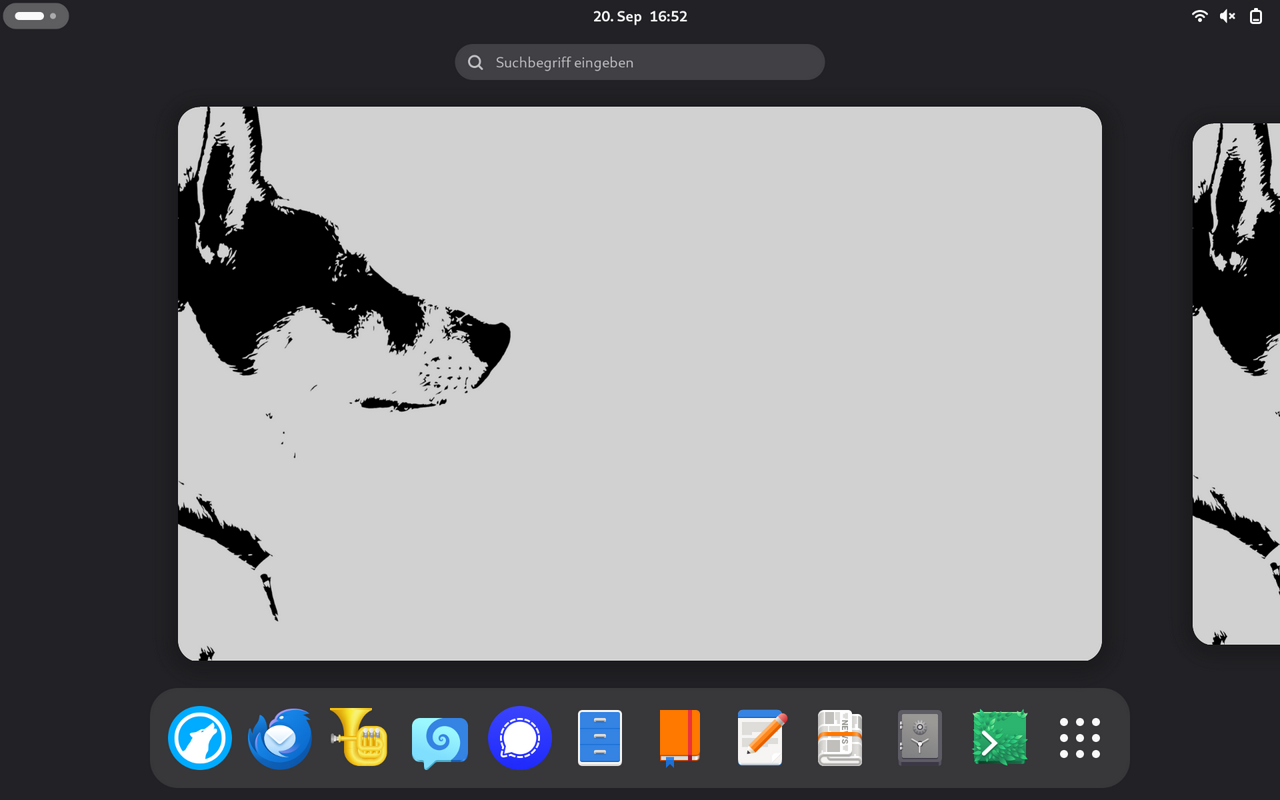Setup
Linux is freedom! Not only that the software is (mostly) free and opensource, I also mean the freedom to personalize your own system.
This is my setup
Update: 12. January 2026
My computers are running Debian stable. I use a desktop computer and a laptop.
Custom build PC (AMD)
- MAINBORD: ASRock B650E PG-ITX WIFI
- CPU: AMD Ryzen5 7500F
- GPU: 8GB Sapphire Radeon RX 6500 XT
- RAM: 32 GB DDR5-5200
- STORAGE: SAMSUNG 990 PRO 1 TB SSD
Framework Laptop 12
- CPU: Intel i5-1334U
- GPU: Radeon 760M Graphics
- RAM: 48 GB DDR5-5600
- STORAGE: WD BLACK SN770M 1TB SSD
dotFiles – Download
All config files can be found at Codeberg and are updated regularly.
Link: dotFiles (https://codeberg.org/Nasendackel/dotfiles)
WM: GNOME

I'm starting to really like GNOME. It looks great and is very well thought out. Nevertheless, I've customized a few things to suit my workflow.
Favourite Apps
Terminal: Ptyxis
Browser: Librewolf
Editor: Gnome-Text-Editor